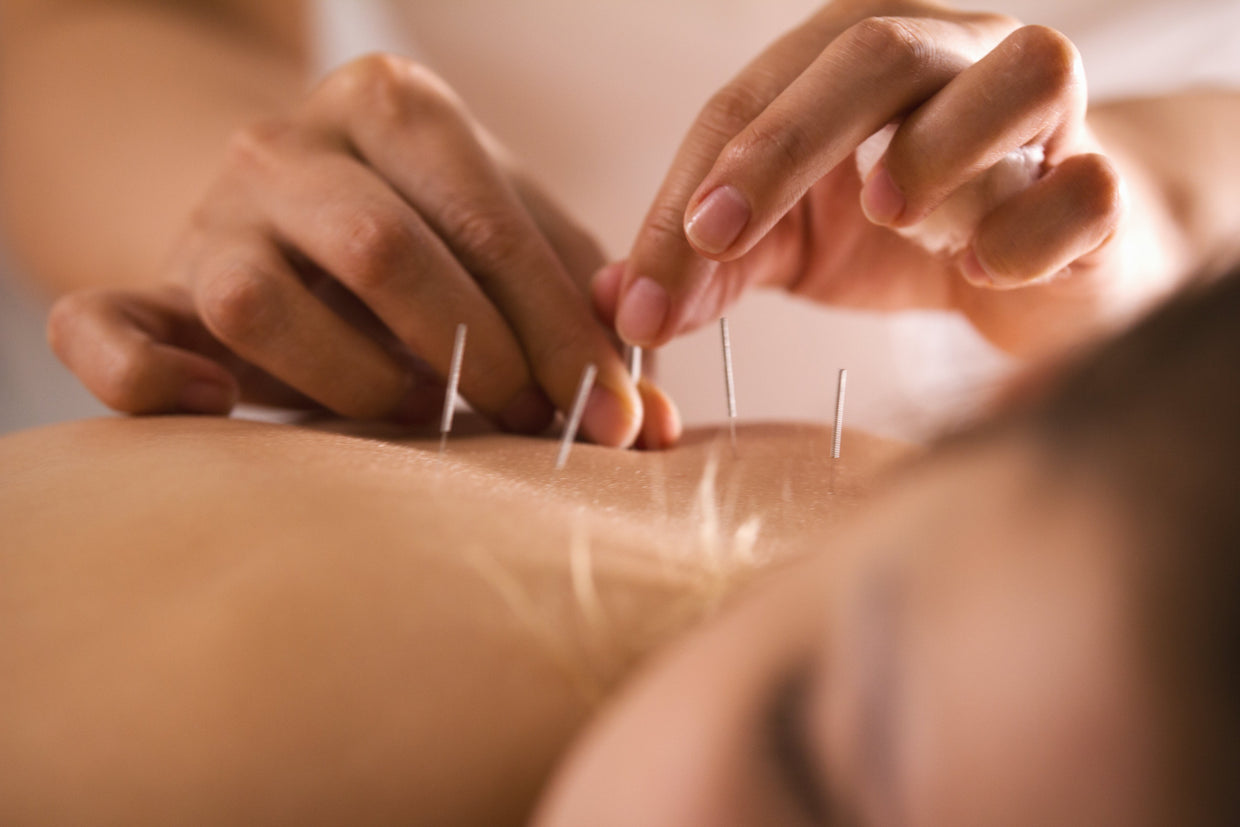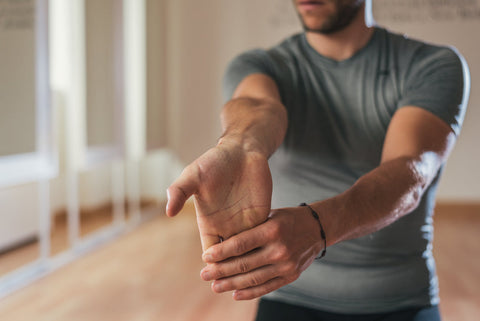

Acupuncture and your joints
When it comes to joint stiffness, understanding what works and what doesn’t is like looking for a needle in a haystack. And in the case of acupuncture, we mean this quite literally!
To combat your stiff joints, you’ve probably been scouring the web for home remedies to go alongside your everyday supplements, and you may have come across acupuncture. But what is it? And how does it help soothe joints? Read on to find out more…
What is acupuncture?
Acupuncture is a treatment developed from an ancient form of Chinese medicine that’s been practiced for thousands of years. The process involves inserting small, thin needles into the skin at different parts of the body.
How acupuncture works

In ancient Chinese medicine, it’s said that acupuncture works by balancing the body’s flow of energy. This energy is known as ‘Qi’, pronounced "chee". Traditional acupuncturists believe that illnesses are caused when Qi doesn’t flow freely through the body. Acupuncture needles are used to restore the flow of Qi, and thus restore health.
But in the western world, doctors think there’s a little bit more science to it. The needles stimulate your nerves, tissues and muscles. This relieves discomfort by diverting pain signals from damaged tissues. It also promotes the production of pain-relieving substances in the body, such as endorphins.
It’s important to note that acupuncture can’t cure joint stiffness, merely ease symptoms.
What to expect during an acupuncture session
Your first acupuncture session will typically last 20 minutes to 1 hour. It includes an evaluation of your overall health, medical history and a physical examination, followed by the needle work:
- Step 1: The needles are inserted into specific places in the body depending on the area that’s affected (aka acupuncture points).
- Step 2: These very fine needles are pushed just under the skin, or sometimes deeper if they have to reach a muscle.
- Step 3: Once in place, the needles are typically left in place for a few minutes, or sometimes up to half an hour!
Does acupuncture hurt?
Acupuncture needles are extremely thin. That’s why you’re likely to feel no pain or very little pain during the process. In fact, most people find it very relaxing and will feel energised post-treatment. It’s important to note that occasionally the needles do cause temporary aches, but these will usually fade after a day or two.
Science or placebo?
For years, this practice didn’t have much backing from the medical community. But there’s now clear scientific evidence of its benefits for conditions such as lower back pain. That’s why acupuncture is becoming increasingly available on the NHS.
Currently, the National Institute for Health and Care Excellence (NICE) only recommends acupuncture as a treatment option for:
- long-term pain
- chronic tension-type headaches
- migraines
The pros and cons

The pros of acupuncture
- Stress relief. Caused by the release of endorphins.
- Higher energy levels. The rejuvenating power of acupuncture sometimes leaves people feeling energised and less fatigued.
- Little to no side effects or adverse reactions.
- It’s only performed by experts. Acupuncture can only be performed by people with a bachelor’s degree in the field, and they must also obtain an acupuncture license. This means you will only receive professional and safe treatment.
- It’s non-invasive.
- Is used to treat many different things. Plus, it has a 4,000-year track record of proven results.
- Can be used alongside other treatments. Think painkillers, physiotherapy and joint supplements.
The cons of acupuncture
Acupuncture is generally safe. While problems are rare, there are a few risks to be aware of:
- It can cause infections to occur. But this only happens if the needles aren’t sterilised (which is a legal requirement in the UK).
- There’s no guarantee it will work. Just like most medical procedures, success isn’t a sure-fire thing.
- Occasionally, symptoms may worsen. In rare cases, some people may feel worse after visiting an acupuncturist.
- It takes time. Acupuncture isn’t a one-treatment plan. It often takes weeks or months of sessions to see any results.
- It can be expensive if it’s not covered by the NHS.
How iMOVE improves your joint health
There are over 300 joints in the human body, and when they’re not working properly, we often know about it. Joint stiffness presents different symptoms in every person. That’s why it’s so important to find a treatment plan that works best for you – it’ll likely be one with a combination of different treatments.
iMOVE Active, our high-quality joint supplements for adults, contains our unique triple-action formula and has been specially formulated to support an active lifestyle. Subscribe today and save every month.
Want to learn more about your body? Find out how your joints change with age and how different surfaces affect your joints.





